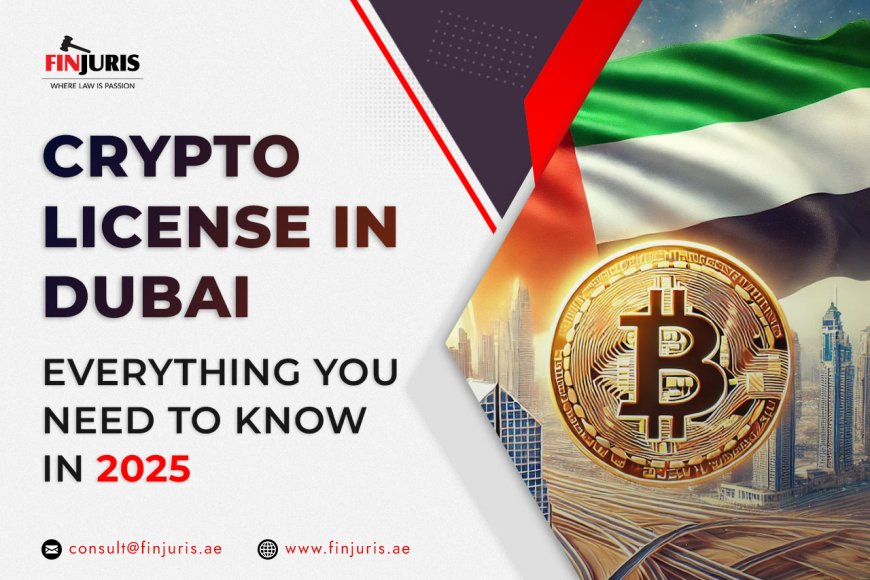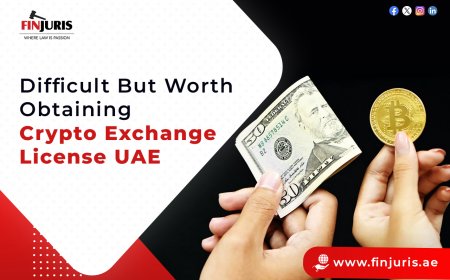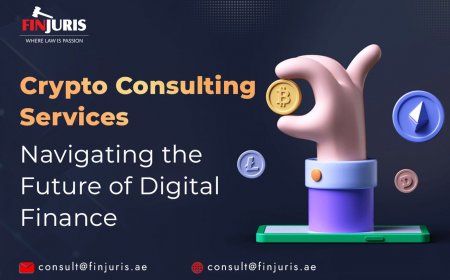Crypto License in Dubai: Everything You Need to Know in 2025
Learn everything about getting a crypto license in Dubai in 2025, including key regulations, benefits, and the application process.

Dubai has rapidly become a global hub for cryptocurrency businesses, offering a clear regulatory framework, modern infrastructure, and tax-efficient benefits. With the establishment of the Virtual Assets Regulatory Authority (VARA), Dubai has emerged as one of the most progressive jurisdictions to obtain a crypto license. Whether you're launching a centralized exchange, NFT marketplace, DeFi platform, or custodial service, a crypto license in Dubai is essential to operate legally and gain global credibility.
This article provides a step-by-step guide to obtaining a crypto license in Dubai in 2025, covering regulatory authorities, license categories, requirements, costs, and operational benefits.
What Is a Crypto License?
A crypto license is a legal authorization granted by a regulatory authority to allow a business to operate with virtual assets, including cryptocurrencies, tokens, NFTs, and blockchain-based financial services. In Dubai, this license is issued by VARA—the dedicated regulator for virtual assets within the Emirate.
Obtaining a crypto license ensures that your operations comply with UAE laws, anti-money laundering (AML) rules, cybersecurity standards, and investor protection requirements.
Read Also: Crypto Exchange License UAE: A Legal Path To Run Your Crypto Exchange in the United Arab Emirates
Who Issues the Crypto License in Dubai?
The Dubai Virtual Assets Regulatory Authority (VARA), established in 2022, is the sole authority for licensing and regulating Virtual Asset Service Providers (VASPs) in Dubai (excluding DIFC, which has its own regulator—DFSA).
VARA is responsible for supervising all activities involving cryptocurrencies, virtual assets, and related services, including:
- Crypto exchanges
- Wallet services
- Custodians
- Brokers
- NFT marketplaces
- Lending platforms
- DeFi and staking services
Types of Crypto Licenses Offered by VARA
VARA offers multiple license categories based on the nature of the virtual asset activity. These include:
1. Exchange Services License
For businesses operating crypto-to-crypto or crypto-to-fiat trading platforms, including centralized exchanges (CEXs) and decentralized exchanges (DEXs).
2. Broker-Dealer License
For entities acting as intermediaries in buying/selling or executing client orders for virtual assets.
3. Custody Services License
Required for businesses offering secure custody, storage, and safekeeping of virtual assets on behalf of clients.
4. Advisory Services License
For businesses providing investment advice or portfolio management related to virtual assets.
5. Transfer and Settlement Services License
Required for wallet providers and platforms facilitating peer-to-peer transfers or settlement of virtual asset transactions.
6. VA Lending & Borrowing Services License
Covers businesses offering lending, staking, or yield-generating services involving crypto assets.
VARA and Crypto: The Function of VARA in Protecting Investors in the Crypto Market
Benefits of Obtaining a Crypto License in Dubai
- 100% Foreign Ownership
Investors can retain full ownership of their business under Dubai’s free zone structure (especially in DWTC). - Regulatory Clarity
VARA’s rulebooks offer a structured, transparent regulatory pathway tailored to crypto operations. - Global Reputation
Dubai’s proactive approach to Web3 regulation positions it among top jurisdictions for crypto credibility. - Tax Efficiency
Zero personal income tax and business-friendly corporate tax regime. - Access to Banking and Institutional Partners
Licensed VASPs are more likely to gain access to banking channels, payment gateways, and regulated custodians.
Eligibility Criteria for a Crypto License in Dubai
To qualify for a crypto license in Dubai, applicants must meet several legal and operational standards:
- Incorporate a UAE company (often within Dubai World Trade Centre Free Zone)
- Submit a detailed business plan outlining services, structure, and compliance approach
- Appoint a Compliance Officer and Money Laundering Reporting Officer (MLRO)
- Maintain local presence or office (minimum staffing requirements may apply)
- Implement robust AML/CFT compliance frameworks
- Demonstrate technical controls including wallet architecture, KYC onboarding, and cybersecurity protocols
Application Process for a Crypto License in Dubai
Step 1: Initial Consultation and Scoping
Consult with a legal advisory firm to determine the appropriate license category and free zone jurisdiction.
Step 2: Company Incorporation
Register your entity in Dubai, typically under DWTC or another VARA-recognized free zone.
Step 3: Regulatory Pre-Assessment
VARA will review the business model, risk profile, and scope of services to determine license eligibility.
Step 4: Submission of Documents
Required documents include:
- Corporate documents (trade license, MoA, shareholder list)
- Business plan and compliance manuals
- KYC/AML policies
- IT infrastructure overview
- Personal disclosures of shareholders and directors
Step 5: Fit and Proper Evaluation
Background checks, financial capability, and experience assessments are conducted for key personnel.
Step 6: Approval and License Issuance
Upon approval, a commercial license is granted, and your business may begin operations under regulatory supervision.
Read More: How Does Crypto License Dubai Influence Investment and Market Entry Strategies
Timeframe and Cost
- Timeline:
VARA licensing can take between 6 to 12 months, depending on the complexity and preparedness of the applicant. - Cost:
Total costs vary based on business model, license category, and compliance needs, but typically include: - Application & regulatory fees: AED 50,000–150,000+
- Company formation: AED 10,000–25,000
- Office space: Depending on requirements
- Legal & consultancy fees: Varies per firm
Post-Licensing Compliance Requirements
After obtaining the crypto license in Dubai, businesses must maintain ongoing compliance, including:
- Annual audit reports and financial disclosures
- Ongoing KYC/AML screening and transaction monitoring
- Filing of suspicious transaction reports (STRs) to FIU-UAE
- Cybersecurity measures aligned with the VARA Technology and Information Rulebook
- Client asset segregation and custody oversight (if applicable)
- Internal compliance training and governance reviews
Crypto License in DIFC (Alternative Option)
Businesses may also consider setting up under Dubai International Financial Centre (DIFC), where the Dubai Financial Services Authority (DFSA) governs digital asset activities. DFSA offers licenses for:
- Investment tokens
- Security tokens
- Crypto custody
- Asset management and tokenized fund services
DIFC is ideal for institutional-grade projects, fintech firms, and tokenized investment platforms targeting financial markets.
Challenges to Consider
- High regulatory standards: Licensing under VARA requires detailed internal controls, legal documentation, and operational maturity.
- Ongoing cost of compliance: Maintaining a license involves audits, reporting, and system upgrades.
- No federal license: UAE crypto regulation is jurisdiction-based. Dubai’s license does not extend to all Emirates unless recognized.
A crypto license in Dubai is your gateway to building a legitimate, scalable, and globally respected virtual asset business. With its investor-friendly ecosystem, clear regulations, and access to regional and international markets, Dubai offers a compelling base for crypto startups, exchanges, and fintech innovators.
However, securing the license involves careful planning, compliance strategy, and legal navigation. Working with an experienced legal consultancy ensures that you meet all regulatory expectations and launch your business with confidence.
What's Your Reaction?




















